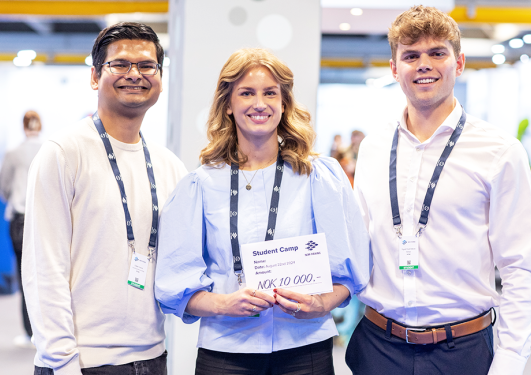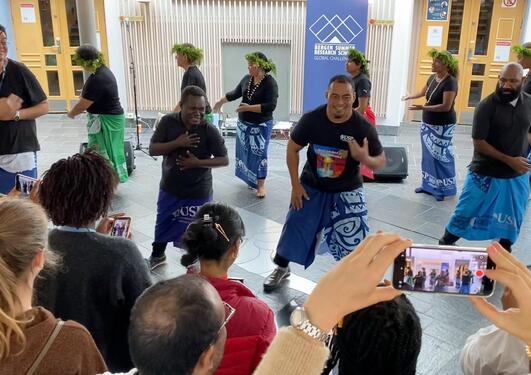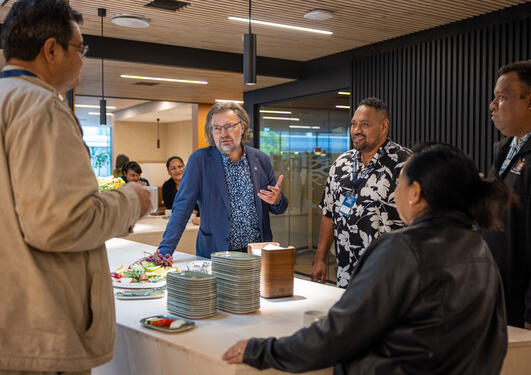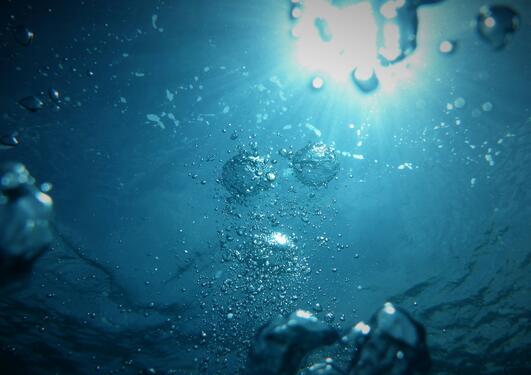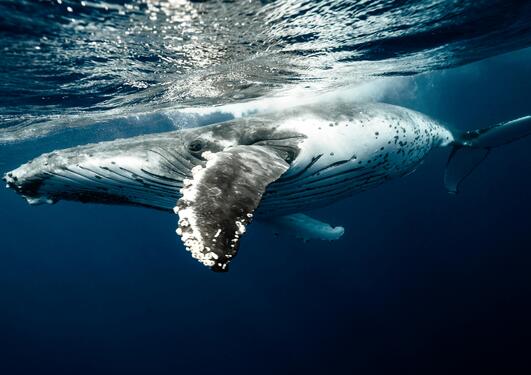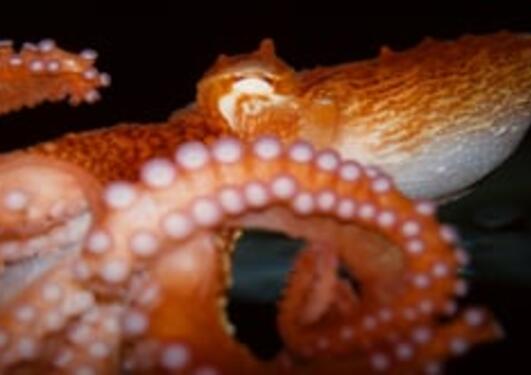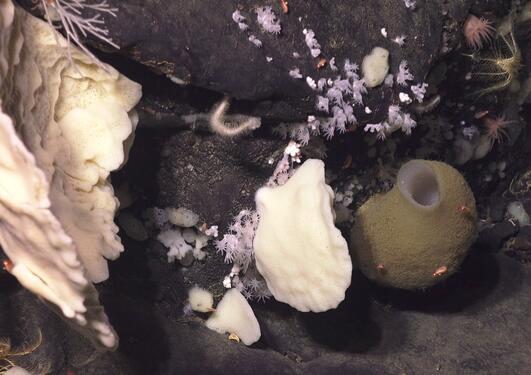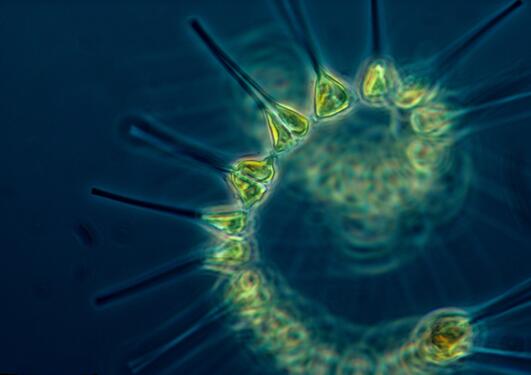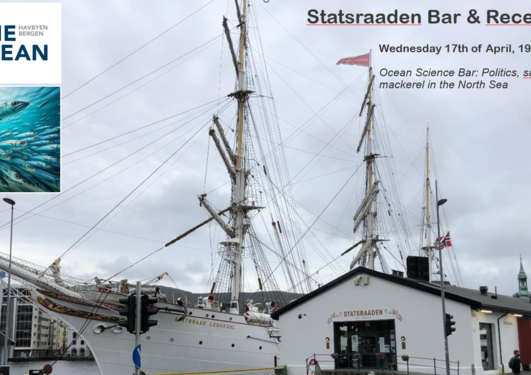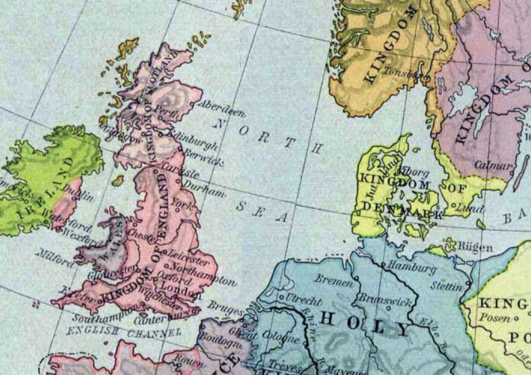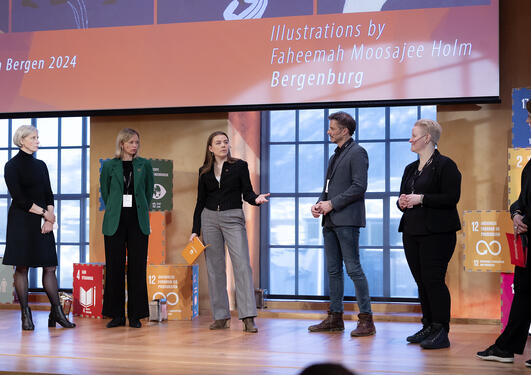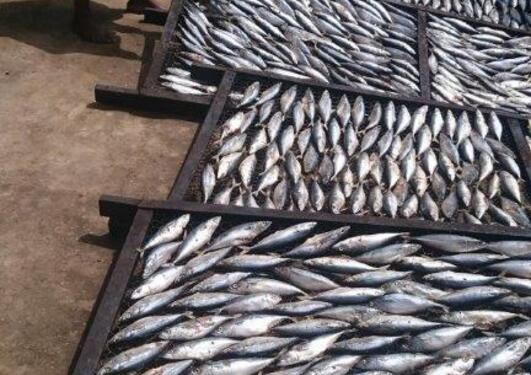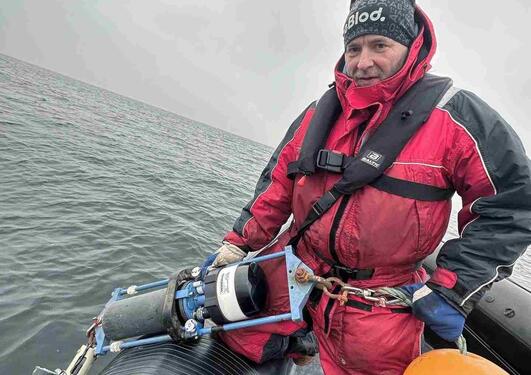News archive for Ocean
Hanna Sannes, master’s student in biodiversity, ecology and evolution, recently triumphed with her team at NOR-FISHING Student Camp competition, pitching an idea for the digitalization of fish spawning data.
Light is probably the most varying environmental variable in pelagic ecosystems, and the most ignored in ecological studies. In this Ocean Science Bar, you will learn how light structures the distribution of zooplankton and fish.
The Norway-Pacific Ocean-Climate (N-POC) Scholarship Programme is unique both in its content and scope. Both for its clear science-policy objectives and the way it’s been shaped as a truly joint doctoral programme.
The Norway-Pacific Ocean-Climate (N-POC) Scholarship Programme was an active ingredient at the 2024 Bergen Summer Research School, bridging ideas of scientific knowledge and traditional knowledge on the ocean-climate nexus during two hectic weeks in Bergen.
The rise in ocean temperature in the past year is one of the most urgent threats to global equity and thus to global stability in a new geopolitical landscape. How can science contribute to solutions to this challenge?
Welcome to our events page! Here, you'll find a comprehensive overview of upcoming and past events hosted at the University of Bergen on marine related topics. Stay updated on the latest happenings and catch up on what you might have missed. Join us for just one event or attend them all – you're always welcome!
On 9 April 2024 the University of Bergen organised an official satellite event on marine genetic resources, global benefit sharing and ocean science diplomacy at the Ocean Decade Conference in Barcelona. Watch a recording of the satellite event.
Deep sea research is a gateway to unlocking mysteries both within our planet and beyond, offering insights that can have profound implications for science, industry, and our understanding of life in the universe.
On 21 February 2024 the University of Bergen and partners organized an event on ocean governance at Norway House in Brussels. The discussions at the event and an outcome discussion has now resulted in the first Ocean Futures 2030 Policy Brief.
We are warned about ultra-processed food. Cattle release gas. In the fjords, the fish farming take up a lot of space. Official diet advices creates much debate. Consumers think green, but act "sugary". In the myriad of diets and trends: What should you believe and who should you listen to? We take a deep dive into the research - with seafood and sustainable food production as key keywords. The... Read more
Pint of Science is teaming up with One Ocean Week for an evening of science dissemination open to all on the theme of the Arctic. By bringing together experts from diverse backgrounds, we aim to spark curiosity and meaningful conversations about the Arctic region and its significance to our global community. So grab a pint, and come discover with us the secrets of this fascinating ocean!
How do sandeel stocks respond to fisheries policy and increasing activity in the North Sea? And how did Brexit influence the mackerel fisheries intensity and harvesting strategy - what was the consequences for the mackerel stock and the carbon footprint of the fisheries?
The North Sea is a shared ocean with a high economic activity and large social importance to all bordering countries. What do we know about the North Sea? We have gathered some leading experts to provide answers for a broad audience and give an interdisciplinary perspective on its history and future.
The 2024 conference consisted of both a digital day with talks and debates in English, where around 1300 people participated, and a physical conference day in Norwegian.
«We are well aware that a significant change is necessary. We have the knowledge that is needed. Now we must figure out what to do,» professor Håvard Haarstad at UiB says. The seventh SDG Conference in Bergen will be held from 7.-9. February. We ask: What should be the role of universities?
Welcome to the digital and free SDG Conference in Bergen 2024! The theme is Take a look at the programme and register today.
A new report from the UN’s Food and Agriculture Organization (FAO) states that small fish are an underestimated source of nutrition and can contribute to solving challenges related to food security globally. The conclusion is that the world must eat more nutritious food – and one of the answers is small fish.
When Nagaoka University of Technology in Japan hosted a hybrid event to showcase links between science and business, UiB’s industry partner Aanderaa stepped up to the challenge. The event originated in the university’s international commitments towards Sustainable Development Goal (SDG14), Life Below Water.
Pages
- October 2025 (1)
- August 2025 (2)
- July 2025 (1)
- June 2025 (1)
- April 2025 (1)
- March 2025 (1)
- February 2025 (3)
- January 2025 (1)
- October 2024 (2)
- September 2024 (4)
- August 2024 (3)
- June 2024 (3)
- May 2024 (1)
- April 2024 (2)
- March 2024 (5)
- February 2024 (2)
- December 2023 (1)
- November 2023 (2)
- October 2023 (1)
- September 2023 (2)
- August 2023 (2)
- July 2023 (1)
- June 2023 (3)
- April 2023 (3)
- March 2023 (1)
- February 2023 (1)
- January 2023 (1)
- November 2022 (1)
- October 2022 (1)
- June 2022 (2)
- April 2022 (3)
- March 2022 (1)
- February 2022 (1)
- December 2021 (1)
- November 2021 (2)
- October 2021 (3)
- July 2021 (1)
- June 2021 (4)
- May 2021 (1)
- April 2021 (1)
- March 2021 (3)
- February 2021 (2)
- January 2021 (1)
- December 2020 (2)
- November 2020 (2)
- October 2020 (2)
- August 2020 (2)
- July 2020 (1)
- June 2020 (6)
- May 2020 (2)
- April 2020 (2)
- March 2020 (2)
- February 2020 (1)
- January 2020 (1)
- November 2019 (1)
- October 2019 (5)
- September 2019 (2)
- August 2019 (1)
- July 2019 (3)
- June 2019 (1)
- May 2019 (2)
- March 2019 (1)
- February 2019 (1)
- January 2019 (1)
- November 2018 (2)
- October 2018 (2)
- September 2018 (2)
- August 2018 (2)
- June 2018 (1)
- May 2018 (2)
- April 2018 (1)
- February 2018 (1)
- January 2018 (1)
- December 2017 (1)
- November 2017 (3)
- June 2017 (4)
